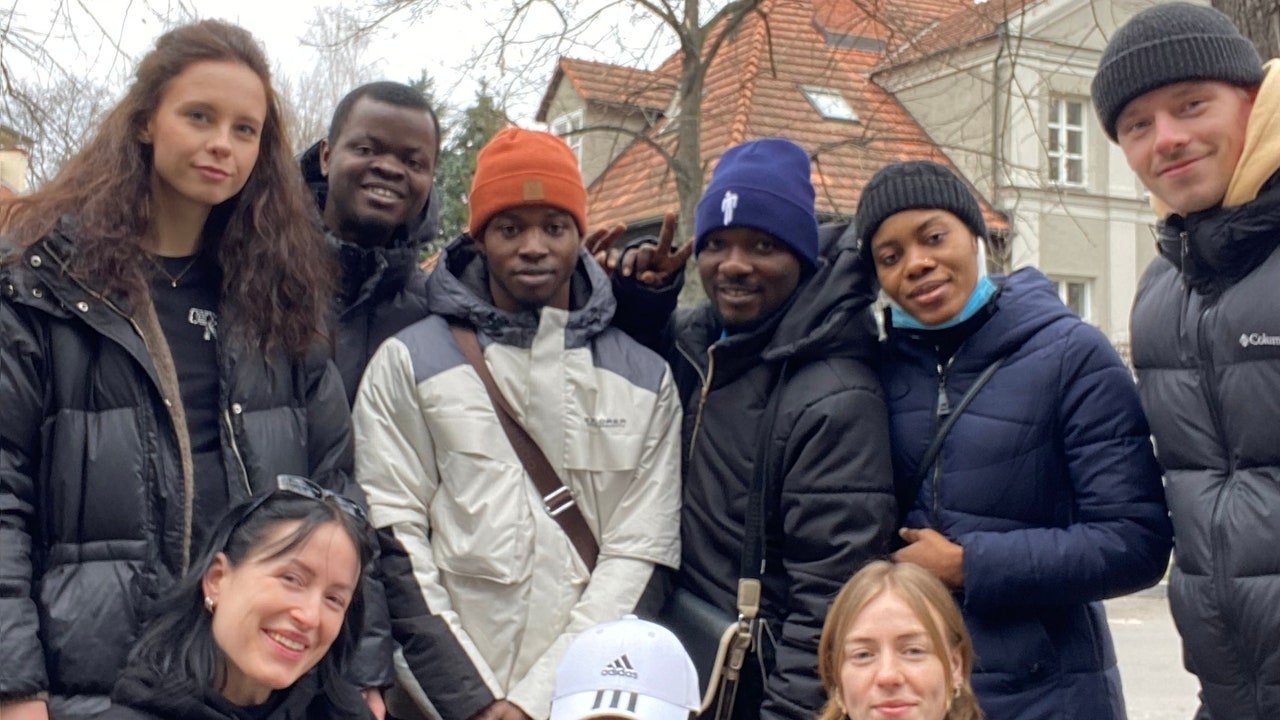For Butler, family was an integral part of a person’s identity. “Although I don’t have a husband or children, I have another family and that seems to be our most important relationship. It’s so much of who we are … family ties can even survive truly horrible abuse,” she told the academic journal science fiction studies. For Dana, Olivia holds the key to understanding herself, and her time-travelling misadventures present a chance to help her ancestors and redeem her mother’s memory. Her mission is complicated by Kevin Franklin (Micah Stock), a 30-something waiter and musician, who drives her home after an awkward family dinner; they later match on Tinder.
While the book introduces Kevin as Dana’s husband, the change in his characterization on the show increases the tension and insecurity in their relationship. He also increases Dana’s precarious situation. Each time she travels to the Weylin Plantation, Kevin’s whiteness is a paradox that serves as protection and liability. When Dana and Kevin travel back together, Kevin pretends to be Dana’s master, tempering (though not fully protecting) her from the worst of plantation life. However, his white privilege also makes him naïve if not totally ignorant of the dominant culture of the Antebellum South. “Kevin is so necessary to Dana past and present, but he … doesn’t understand their willingness and determination to act on their feet every time they come back,” says Johnson. “Kevin has this privilege of being stunned by the situation, while Dana does not have this privilege because she is a young black woman; She understands her place in this time, even if she has never been there.”
relationship may have been published over four decades ago, but the novel’s searing portrait of survival and its indictment of the barbaric practices of slavery still resonate. Some Butler fans might be disappointed that the show isn’t a literal adaptation, but changes like updating Dana’s present-day reality from the 1970s to 2016 reflect Butler’s goal: to write about slavery with emotional immediacy and show how the shameful Our country’s past has shaped today’s systemic oppression and anti-Black rhetoric. The change is one Johnson appreciates, as “it would have felt like we were already well advanced rather than being so present.” With Dana existing in 2016, viewers have to reflect on “how we are right now.” , in this moment, to our history,” says Johnson.
At the end of the last episode of the first season, Dana is worse than before. Her battered body bears the physical and psychological scars of time travel, and she has inadvertently left Kevin in the past. But she refuses to give up and turn her back on the enslaved community or Kevin. After convincing Denise that she isn’t going insane and experiencing a strange phenomenon beyond her control, she looks at the clock with concern, wondering when the next time she will disappear. For this brief moment, Dana is safe. But their inherited ability is a reminder of family history – a cruel burden or the amazing triumph of the human spirit.




